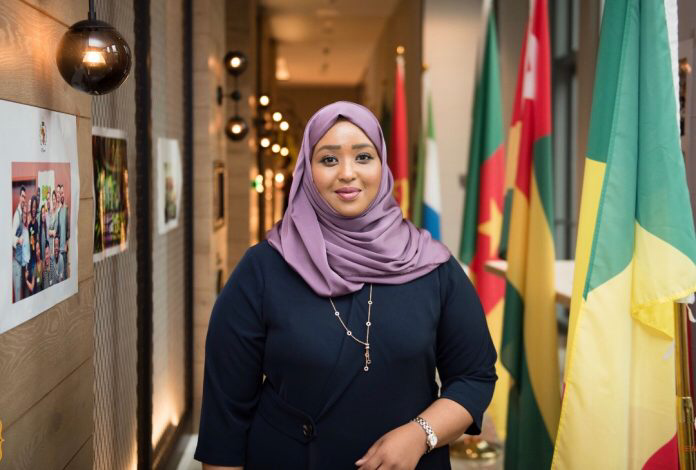Beijing, (SONNA): In an exclusive interview with the Somali National News Agency (SONNA), The Federal Republic of Somalia’s Ambassador to China, Dr. Hodan Osman Abdi, shared deep insights into the evolving relationship between the two countries, one that spans centuries and is now entering a strategic new chapter focused on economic independence and educational empowerment.
Somalia was the first East African country to establish formal diplomatic ties with the People’s Republic of China in 1960. But as Ambassador Hodan reminds us, this connection dates back even further nearly 600 years when famed Chinese explorer Zheng He sailed to the Somali coast, opening the ancient Maritime Silk Road. Today, as China revives that vision through the Belt and Road Initiative, Somalia is once again poised to play a pivotal role.
CAETE: Somalia Redefines Its Global Image
Somalia recently took part in high-level diplomatic and trade meetings in China, led by Minister of Foreign Affairs Abdisalaan Abdi Ali (Dhaay), where Somali entrepreneurs showcased locally made products for the first time at the China-Africa Economic and Trade Expo (CAETE).
Ambassador Hodan told the Somali National News Agency (SONNA) that this participation marked a turning point in how Somalia presents itself to the world.
“Many people believe Somalia has nothing to export, but this event challenges that narrative. It showed the world that Somali products have value and potential.”
During the same visit, Chinese President Xi Jinping announced that imports from African countries with strong ties to China would be exempt from customs duties a decision that Dr. Hodan described as “encouraging and central to enabling Somali exports to access Chinese markets.”
China’s Long-Term Investment in Somalia’s Capacity
Speaking to SONNA about China’s approach to supporting friendly nations, Ambassador Dr. Hodan Osman highlighted the value of sustainable, long-term investment particularly in human development.
“Financial aid and donations are important, especially in times of urgent need,” she said. “But what truly builds a country’s future is the ability to stand on its own through education, skills training, and institutional development.”
She noted that China has increasingly prioritized capacity-building and scholarships for Somali students and professionals, a model she sees as particularly impactful.
“There’s a well-known Chinese proverb that says: ‘”Giving someone a fish is not as good as teaching them how to fish.” That spirit reflects the depth of the relationship we’re not just receiving help, we’re being equipped to help ourselves.”
For Dr. Hodan, this approach reflects a mature and strategic partnership, one where Somalia is gradually transitioning from dependency toward self-sufficiency with China’s support aligned to that national vision.
Somalia’s Role in China’s Global Vision
Ambassador Hodan also highlighted Somalia’s strategic importance in the modern Silk Road. With its coastline on the Indian Ocean and proximity to both Arab and African markets, Somalia is naturally positioned as a bridge between continents.
“As China renews the Belt and Road Initiative, Somalia has a chance to become a key connector between the Indian Ocean, the Arab world, and the rest of Africa,” she told SONNA.
The Ambassador concluded by reflecting on the 65-year journey of Somali-Chinese relations from the first diplomatic ties in 1960 to the promising partnerships taking shape today.
“We must take advantage of this moment, to build a future where Somalia is no longer defined by crisis, but by its contributions and potential.”
Somali-Chinese relations are poised to evolve beyond traditional bilateral cooperation. The focus is now on mutual growth, self-reliance, and shared opportunity. The goal is not simply profit but liberation from cycles of dependency that have long defined international aid.
From Zheng He’s historic voyage six centuries ago to Xi Jinping’s recent trade commitments, a new model of partnership is emerging one that could redefine how the world sees Somalia. Rather than a country perpetually in crisis, Somalia might soon become a leading example of how smart diplomacy, strategic geography, and investment in human capital can rewrite a nation’s story.





